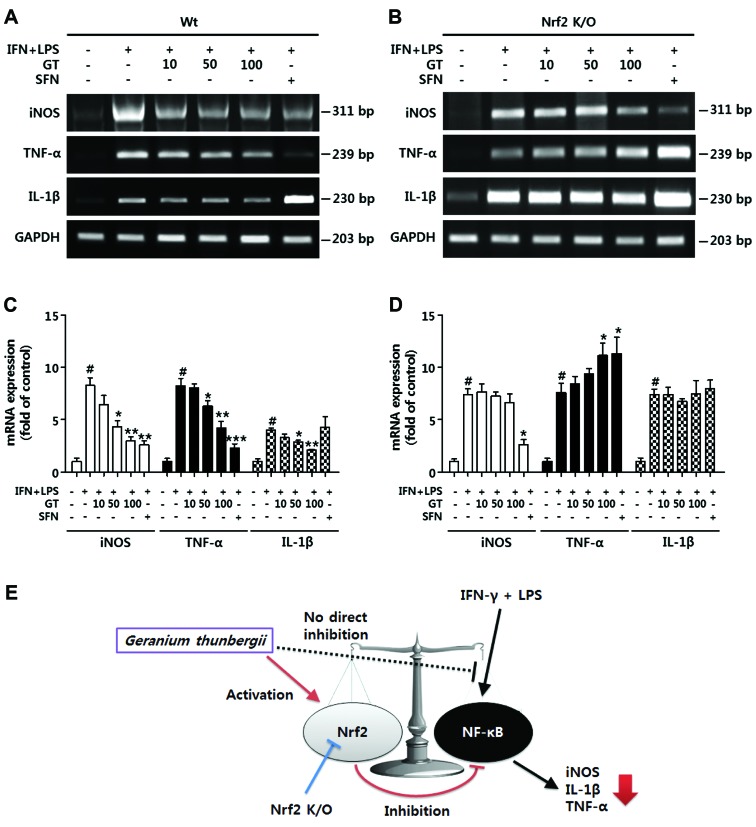Figure 7.
Inhibitory effects of Geranium thunbergii (GT) on the expression of pro-inflammatory genes are regulated by nuclear factor erythroid 2-related factor 2 (Nrf2) activity. (A and B) Bone marrow-derived macrophages from (A) wild-type C57BL/6 or (B) Nrf2 knockout mice were treated with GT (100 μg/ml) or sulforaphane (SFN; 5 μM) for 4 h prior to stimulation with interferon-γ (IFN-γ) and lipopolysaccharides (LPS) (10 ng/ml, respectively). The expression of pro-inflammatory genes, including inducible nitric oxide synthase (iNOS), interleukin-1β (IL-1β) and tumor necrosis factor-α (TNF-α) were estimated by RT-PCR. The expression of glyceraldehyde-3-phosphate dehydrogenase (GAPDH) was used as an internal control. (C and D) The intensity of the bands was densitometrically quantitated and calculated as the mean ± SD of 3 independent experiments. #p<0.001 compared to the negative control (first column); *p<0.05, **p<0.01 and ***p<0.001 compared to the positive control (second column). (E) A schematic representation of the anti-inflammatory effects of GT.

